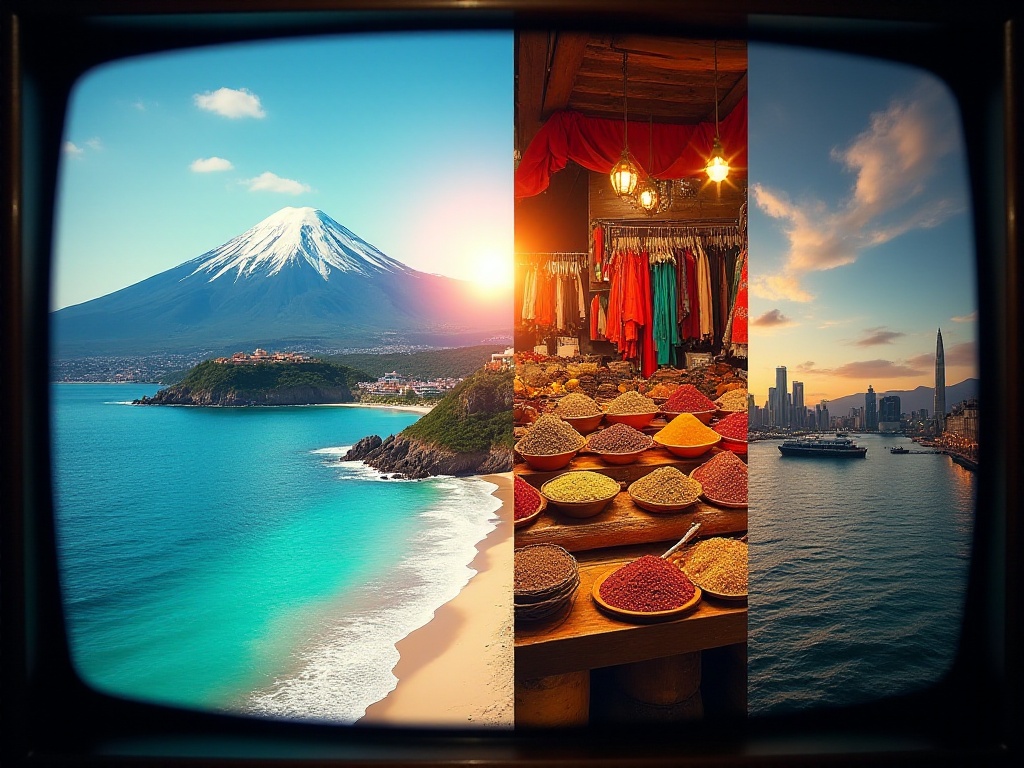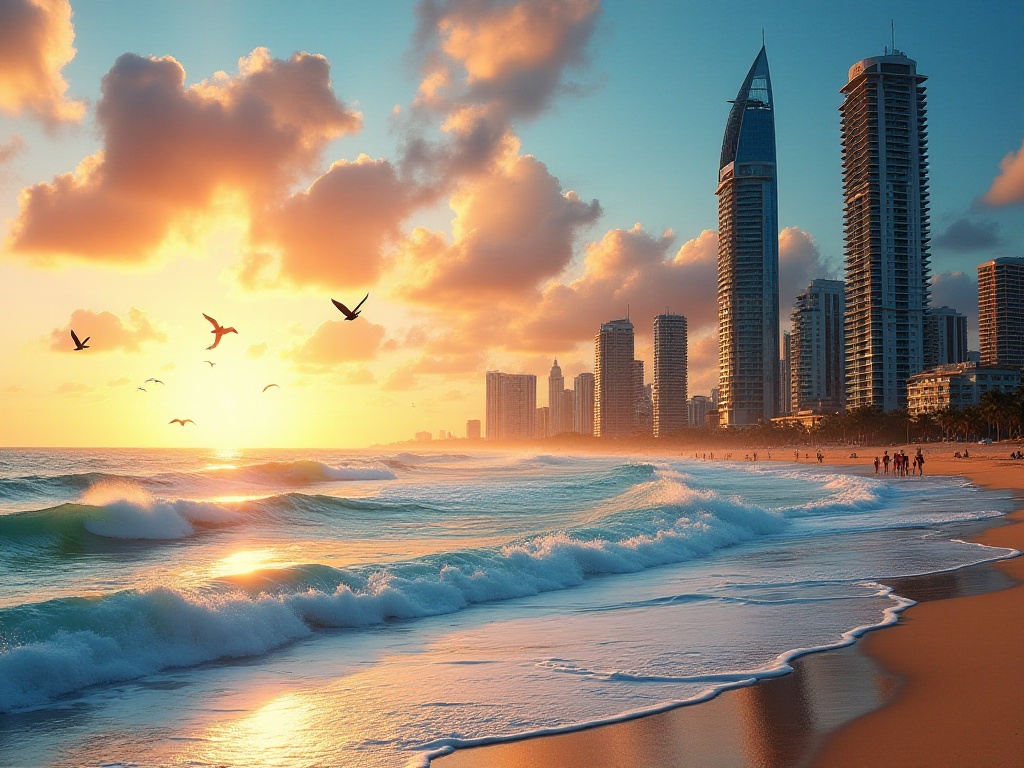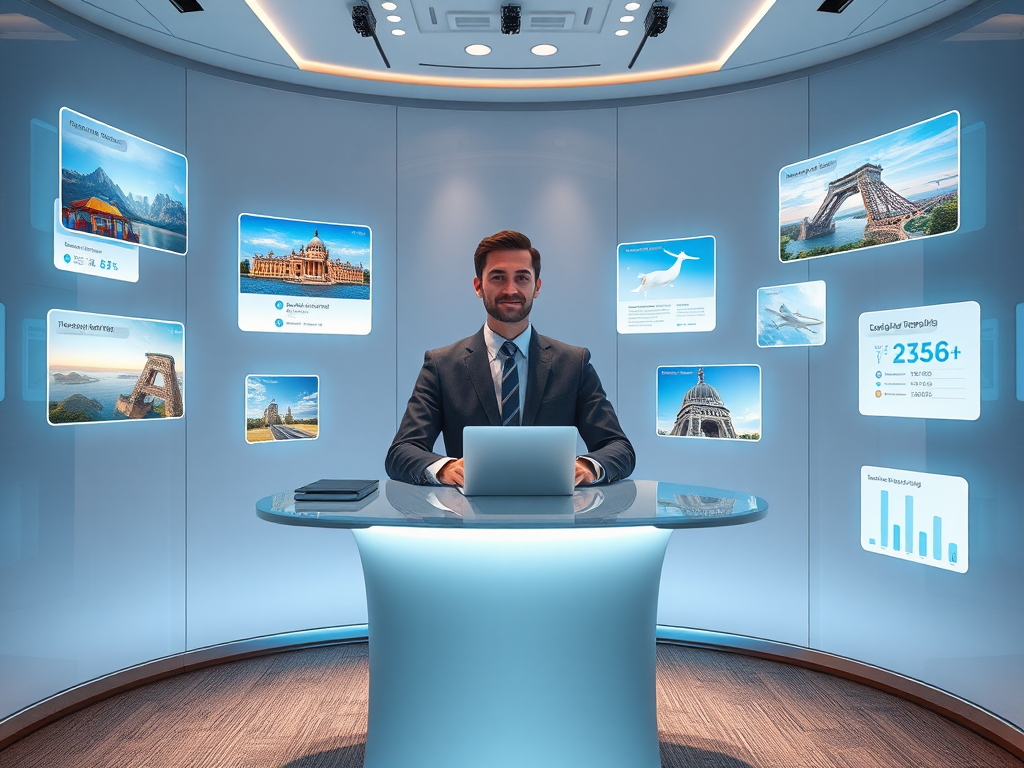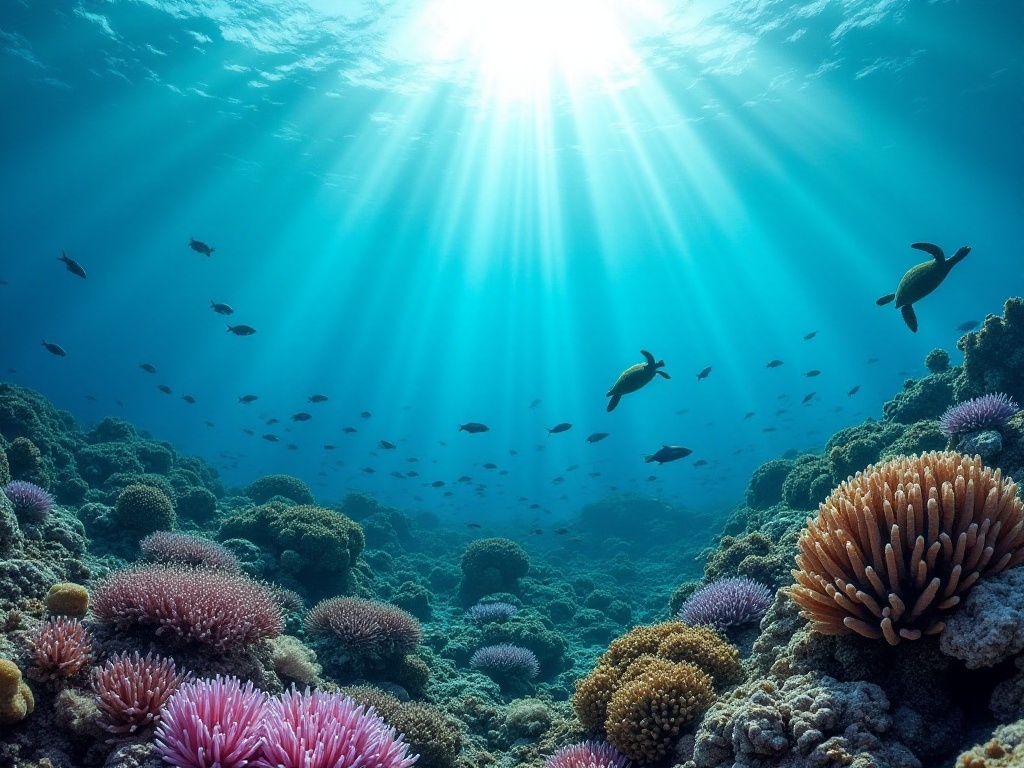
Opening Chat
As a travel blogger who has visited over 40 countries worldwide, whenever I see friends asking about travel planning in my social circle, I can't help but want to share my experience. Honestly, a good travel guide can make your travel experience soar! Think about it - without reliable guides, you might encounter many pitfalls: staying at remote hotels, buying overpriced tickets, missing out on the most authentic local food... So today, let's discuss how to use various travel guide platforms to plan the perfect trip.
Airlines Also Make Travel Guides
When it comes to travel guides, many people's first thought might be platforms like Mafengwo or Qyer. But guess what? Many airlines' official travel guide platforms are also super reliable! I've recently become obsessed with Qantas's Travel Guides, which is basically an encyclopedia for traveling in Australia.
For example, when I recently used it to plan my Sydney trip, I found the platform incredibly thoughtful. From the moment you get off the plane, it considers all the details: Should you choose the airport express or taxi from the airport to the city? If you want to save money, which terminal and exit number is the airport bus at? For accommodation in Sydney, which area should you choose for ocean views? Where should you stay if you want to shop?
Moreover, it provides detailed accommodation recommendations based on your budget. For instance, if your budget is between 200-300 AUD, it recommends boutique hotels near Darling Harbour; for 100-200 AUD, it suggests hostels in the city center; if you have a generous budget and want a luxury experience, it tells you which five-star hotels offer stunning views of both the Opera House and Harbour Bridge.
For attraction recommendations, it doesn't simply list popular spots but designs optimal routes based on your available time. For instance, if you only have one day, it suggests visiting the Opera House in the morning, having lunch in The Rocks, sunbathing at Bondi Beach in the afternoon, and returning to Circular Quay for sunset. If you have more time, it recommends hidden spots that only locals know about, like the artistic Newtown or Watsons Bay for whale watching.
What impressed me most were its food recommendations. Not tourist-area trending spots, but places truly beloved by locals. Through it, I found Sydney's most authentic Italian restaurant, hidden in a small alley, with affordable prices and unforgettable pasta. And that breakfast place it recommended - though you need to wait 40 minutes in line, the avocado toast with freshly brewed coffee is absolutely worth it!
Global Perspective
Speaking of global vision, World Travel Guide is practically the Wikipedia of travel. What makes this platform amazing is that it covers not only all major tourist destinations worldwide but also provides detailed information about more niche destinations.
For example, when I was planning my trip to Kyoto, I learned through this platform that the best time for autumn foliage viewing is mid to late November, and specifically which shrines have the most beautiful maple leaves. It even tells you that Tofukuji Temple's leaves usually peak about a week later than other places, so you can avoid crowds while enjoying the best foliage viewing time.
World Travel Guide also has a unique approach to accommodation recommendations. Instead of simply recommending chain hotels, it digs deep into local characteristic lodgings. Through it, I found a century-old Kyoto machiya guesthouse. This guesthouse preserved the complete traditional architectural structure, with tatami, paper sliding doors, and Japanese gardens all intact. Most special was that the host is a tea ceremony teacher who prepares traditional Kyoto breakfast for guests every morning and teaches them how to make matcha - experiences you simply can't get in ordinary hotels.
Additionally, its airport guides are quite professional. For example, the Kansai International Airport transportation guide details the pros and cons, price comparisons, and specific instructions for various transport options like JR, Nankai Electric Railway, and limousine buses. If you have an early flight, it even reminds you which hotels offer free airport transfers.
Cruise port information is also comprehensive. Taking Yokohama Port as an example, it not only introduces port facilities but also recommends nearby attractions worth visiting. For instance, the famous Yokohama Chinatown, Red Brick Warehouse, and Yamashita Park all come with detailed visiting suggestions and time arrangements.

Tools for In-depth Travel
If you're like me and don't enjoy superficial sightseeing, GetYourGuide is definitely your essential tool. This platform excels at discovering those wonderful experiences that ordinary guides overlook.
I still remember my first delightful experience using GetYourGuide to plan my Paris trip. Everyone knows the Eiffel Tower is beautiful, but how do you make the most of your visit? Regular guides might just tell you where to buy tickets and roughly how long the queue might be. But GetYourGuide provides a complete strategy: First, they suggest avoiding the tourist peak hours between 10 AM and 4 PM; if you want to see the sunset, the best time to go up is around 7:30 PM in summer - not only can you enjoy Paris's most beautiful dusk, but you can also witness the moment when the tower lights up.
They also discovered a perfect viewpoint: at the end of Avenue de Camoens, southeast of the tower, there's a little-known observation platform that offers a unique angle of the tower with hardly any tourists. The nearby Le Petit Cler café not only serves authentic French coffee, but its second-floor terrace also provides a perfect view of the tower - an ideal spot for photos.
Another highlight of GetYourGuide is its recommendation of special experience programs. In Paris, for example, they recommend cooking classes taught by local chefs. You can go to local markets with the chef to buy fresh ingredients and learn to make authentic French crepes or macarons - much more interesting than simply dining at restaurants.
For museum visits, GetYourGuide also has unique insights. Taking the Louvre as an example, they not only tell you the best time to buy tickets (book online 15 days in advance, choose Wednesday or Friday evening sessions), but also recommend different visiting routes based on your interests. If you're interested in Renaissance art, they'll plan a premium route featuring works by Da Vinci, Michelangelo, and other masters; if you want to learn about ancient Egyptian civilization, they'll guide you through the key treasures in the Egyptian gallery.

The Power of Open Source
When it comes to timeliness and authenticity, Wikitravel is definitely one of my most trusted platforms. As an open-source platform, its biggest advantage is that information updates are particularly fast, and they're all first-hand experiences from real travelers.
I remember last year when I was traveling in Rome and encountered temporary maintenance on Metro Line B. While other platforms hadn't yet caught up, Wikitravel had already updated the latest transportation information: not only marking the affected stations but also providing detailed alternative routes. For example, from the Colosseum to Vatican City, which originally could be reached directly by metro, they recommended taking Bus 64 during the maintenance period - though it takes a bit longer, you can enjoy some nice views along the way.
Wikitravel's food recommendations are also particularly reliable. They regularly update restaurant information for various areas in Rome, noting which places have newly opened, which have closed, and which have recently received negative reviews. Through it, I discovered a newly opened trending restaurant in the Trastevere district, where their buffalo mozzarella pizza and handmade pasta are particularly authentic, and the prices are very reasonable.
What touches me most is that Wikitravel also reminds you of some particularly useful tips. For instance, they'll tell you that some small restaurants in Rome charge a "coperto" (cover charge), usually 2-3 euros per person; during peak season, many restaurants require advance reservations, and they thoughtfully list booking phone numbers and emails. These details might be hard to find in other guides.

Mastering New Media
Travel guides nowadays are getting increasingly interesting, especially video programs like TVNZ+'s Travel Guides, which have truly opened up a new way of travel guiding.
I particularly enjoyed their Italy special. In Rome, they interviewed an elderly gentleman who had been running a noodle shop for over 50 years. He not only shared his signature dish recipes but also told many interesting stories. For instance, he said that authentic Roman-style pasta should use pork-stewed tomato sauce rather than simple tomato sauce to create layers of flavor. Through the lens, you can see the old man's skilled movements in kneading and rolling the dough, hear the sound of noodles hitting the pot, smell the aromatic sauce... These sensations are really hard to convey through text alone.
They also film very down-to-earth content. For example, in Venice, they don't just take you to check off St. Mark's Square, but also show you markets that locals love to visit, tell you which café has the most authentic tiramisu, and which alley has the most characteristic mask shops. Most interestingly, they ask locals to share lesser-known tips, like how to avoid crowded water bus times, and which small bridges offer the best photo opportunities.

Choosing Guide Platforms
After discussing so many platforms, I'm sure everyone's head is spinning. Actually, there are techniques to choosing travel guide platforms - the key is to select based on your travel purpose.
If you're visiting a place for the first time, it's recommended to start with the airline's official guide. Airline guides are usually most authoritative and comprehensive, covering everything from flights to accommodation, transportation to attractions. Their transportation information is particularly accurate, as this is their area of expertise.
If you want in-depth experiences and unique travel experiences, then go to GetYourGuide to discover niche routes. Their special experience programs often make your travel more interesting. Plus, their guides are usually very detailed, helping you discover many hidden gems.
During peak travel seasons or when encountering unexpected situations, Wikitravel's real-time information becomes particularly useful. It updates quickly and provides relatively authentic information, helping you adjust your itinerary promptly.
If you prefer video guides, new media platforms like TVNZ+ are excellent. Through videos, you can more intuitively understand the local customs and culture, and learn some practical tips.
World Travel Guide is suitable for doing preliminary research, as its information coverage is broad and can give you a comprehensive understanding of your destination. Especially the niche information it provides often brings pleasant surprises to your travel.

Final Words
Choosing a travel guide platform is as important as choosing a travel companion. A good guide not only makes your journey smoother but helps you discover many unexpected wonderful experiences. Remember, there's no best guide platform, only the one most suitable for you.
When planning travel, it's worth looking at several platforms and combining their strengths, as this is how you can plan a perfect trip. After all, each platform has its own characteristics and advantages, and using them in combination provides the best travel experience.
By the way, which travel guide platform do you use most often? Do you have any unique usage tips? Welcome to share and discuss in the comments section. Let's explore and discover more travel pleasures together!
Next
From Paper Guides to Digital: Exploring the Evolution and Future Trends of Global Travel Guides
Comprehensive analysis of diverse travel guide resources, covering traditional publications like Lonely Planet, online travel platforms, TV travel shows, and digital travel content, providing readers with various channels to access travel information
Discovering the Beauty in Details: Why Are Professional Travel Guides Being Replaced by Personal Travel Experiences?
An in-depth exploration of modern travel guide formats across various media, covering both audiovisual and digital platforms, analyzing their content features, coverage scope, and presentation styles to provide comprehensive travel information
My First Solo Trip Around China: How to Plan a Spontaneous Journey Using Artificial Intelligence
An in-depth analysis of modern travel guide trends, covering AI-assisted planning, social sharing platforms, and digital destination management, exploring the transformation of tourism services towards intelligence and personalization
Next

From Paper Guides to Digital: Exploring the Evolution and Future Trends of Global Travel Guides
Comprehensive analysis of diverse travel guide resources, covering traditional publications like Lonely Planet, online travel platforms, TV travel shows, and digital travel content, providing readers with various channels to access travel information

Discovering the Beauty in Details: Why Are Professional Travel Guides Being Replaced by Personal Travel Experiences?
An in-depth exploration of modern travel guide formats across various media, covering both audiovisual and digital platforms, analyzing their content features, coverage scope, and presentation styles to provide comprehensive travel information

My First Solo Trip Around China: How to Plan a Spontaneous Journey Using Artificial Intelligence
An in-depth analysis of modern travel guide trends, covering AI-assisted planning, social sharing platforms, and digital destination management, exploring the transformation of tourism services towards intelligence and personalization


